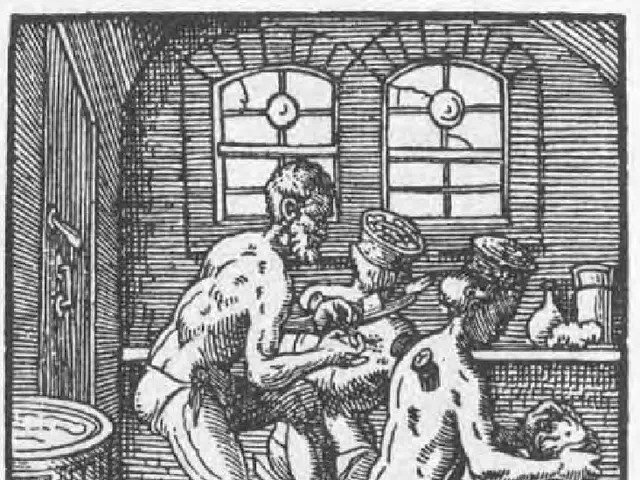Victims of Home Abuse: "The Truth About Male Victims"
In Germany, the issue of underreporting domestic violence against men is a significant concern, especially in regions like North Rhine-Westphalia (NRW). This issue is influenced by various challenges and reasons.
Social stigma and gender stereotypes are key factors that discourage male victims from reporting. Domestic violence is often seen as primarily violence against women, leading to shame, embarrassment, or fear of not being believed. Men may also face societal expectations to appear strong and not show vulnerability, which further inhibits reporting.
Lack of tailored support services for men is another significant issue. Many help centers, shelters, and counseling services are predominantly designed for women victims, limiting access and perceived appropriateness for men. This lack of male-focused resources reduces men’s likelihood of seeking help and official reporting.
Perception and legal framing also play a role. Violence against men is less frequently recognized or publicized, leading to minimized visibility. Official and public narratives tend to emphasize female victimization, causing male victims to feel invisible or dismissed.
Fear of negative consequences and disbelief is another deterrent for men coming forward. They may fear retaliation, loss of child custody, or not being taken seriously by authorities.
Statistical imbalance and reporting practices contribute to the underreporting as well. Although women account for approximately 60-73% of domestic violence victims, experts believe many male cases remain hidden due to low reporting rates.
Specific regional factors in NRW also come into play. As Germany's most populous state with diverse urban and rural areas, the challenges mirror national trends, compounded by the lack of sufficient male-oriented support infrastructure and social awareness at the regional level.
In an attempt to address these issues, Manfred Höges, a certified men's counselor at the Social Service of Catholic Men (SKM) in Düsseldorf, founded the first men's shelter in NRW five years ago. However, all men's protection facilities in NRW are always full, but they can only take in 13 men on average.
The federal government's new Violence Assistance Act excludes men and trans* persons, which further exacerbates the problem. This leaves men like those helped by Manfred Höges with few options for support.
In 2024, there was an increase of 3.7 percent in cases of domestic violence compared to the previous year. This underscores the need for increased awareness, support, and resources for male victims of domestic violence.
Male victims of domestic violence often suppress their emotions and turn them into anger, which is the only emotion accepted for men in some societal circles. This can make it difficult for them to be taken seriously by the police or professionals.
Men's counseling is crucial for male victims, as they may not be taken seriously at gender-unspecific facilities. A certified men's counselor can identify if a man is a victim of domestic violence based on certain behavioral patterns in 95% of cases.
Many men who experience domestic violence may not recognize it and instead describe relationship conflicts. Men's experiences of domestic violence often start with psychological violence, such as gaslighting or manipulation.
Despite these challenges, there is a high demand for men's shelters in Düsseldorf. The lack of resources and social awareness around male domestic violence in Germany, including NRW, necessitates a shift in perspective and the development of more male-focused support services.
The social stigma and gender stereotypes surrounding male victims of domestic violence discourage them from reporting, as they may feel ashamed, embarrassed, or not believed due to the perception that violence is primarily inflicted upon women.
The scarcity of specialized support services catering to men's needs also hampers their willingness to seek help, as many help centers, shelters, and counseling services are primarily designed for women victims, thereby making them inappropriate and inaccessible for male victims.




